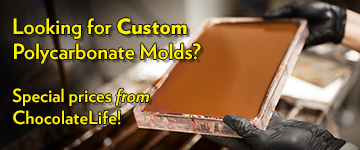How is cocoa butter produced?
updated by @lemm-huang: 05/05/15 02:02:59
Tags
Activity
Chocolatevenue is an online chocolate store in India.We are specialized in customized chocolates .Chocolates can be customized as chocolate message and chocolate bars.
You can get written your message on chocolates and can get customized your chocolate bars by selecting the desired ingredients.
for more details
FOR SALE / BARGAIN / FINE CACAO LIQUOR, COLOMBIA ORIGIN
Enjoy a delicious premium chocolate from the Boyacá region of Colombia, considered among the best in the world. We offer a 200 kilograms lot of pure origin cocoa liquor, fair trade / ethically sourced. N o other ingredients added.
The price for this high quality product is as follows:
1 kg - US$ 13
100 kg - US$ 12 per kilo
200 kg - US$ 11 per kilo
Inquires: equalcolombia@gmail.com
- See more at: https://www.thechocolatelife.com/colorchocolate#sthash.JFDWYFuK.dpuf
- See more at: https://www.thechocolatelife.com/community/forums/my_posts/18453/fine-cacao-liquor-colombia-origin#sthash.2pUq4Eu3.dpuf
The headline says it all: United Cacao: the sad tale of when things really go wrong for Aim investors .
Two changes we made with the chocolate is that this time we winnowed the chocolate. This time we didn't use a blow dryer to melt the chocolate. Two improvements with the chocolate is that the melanger didn't get clogged this time and everyone put in work.

